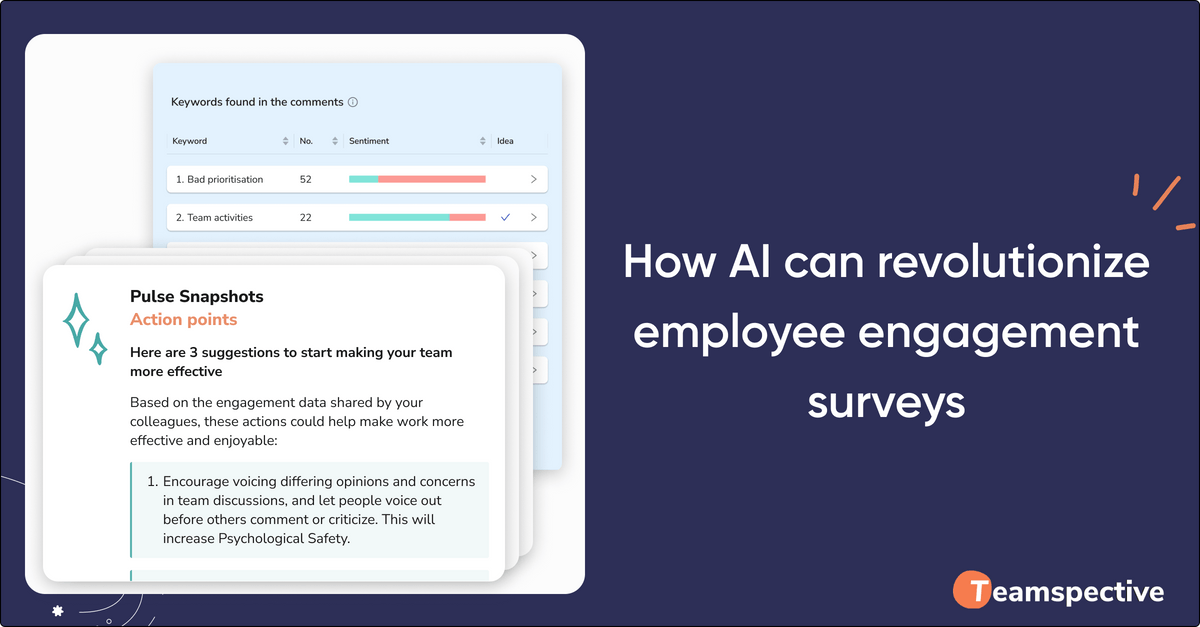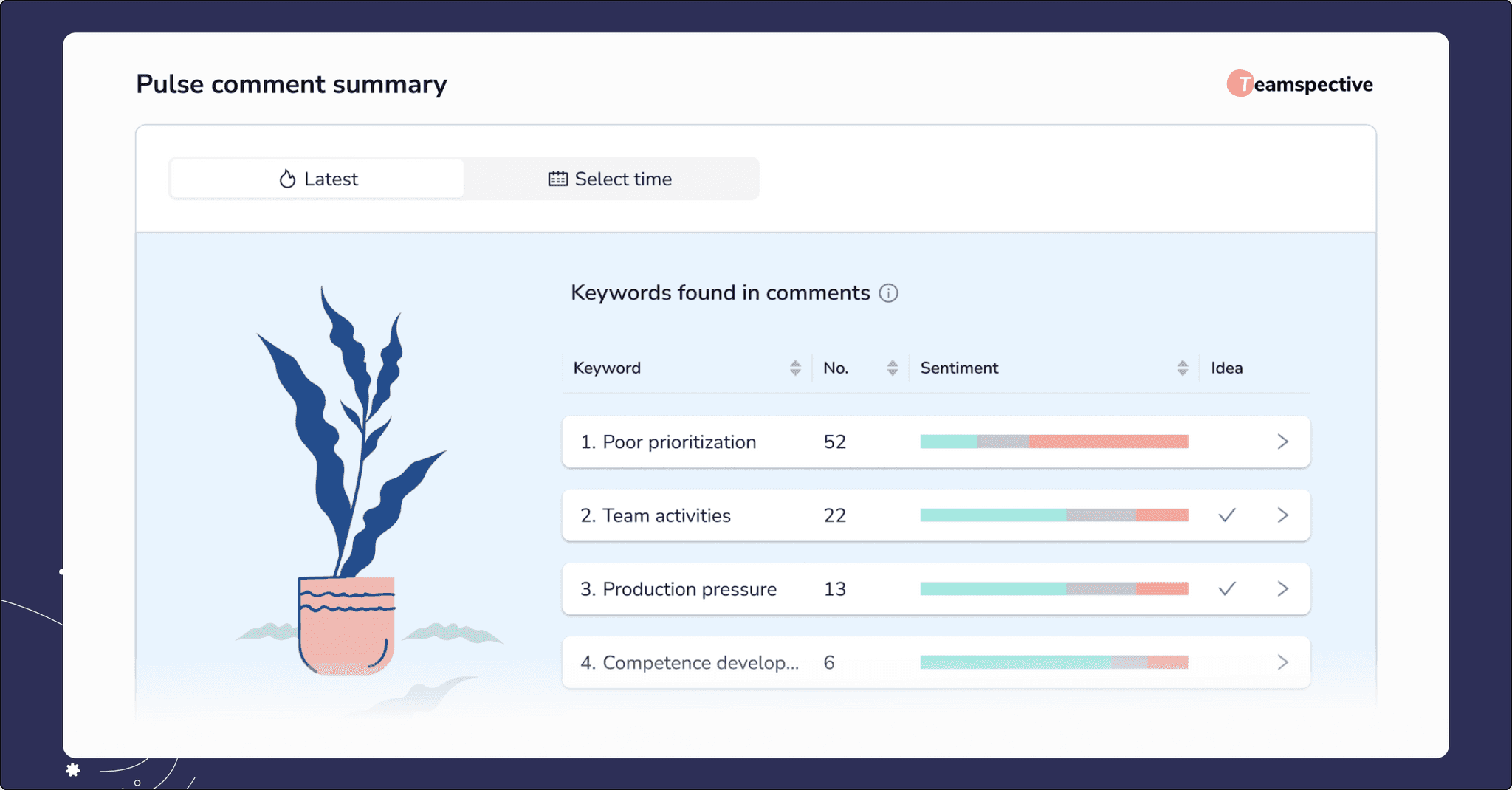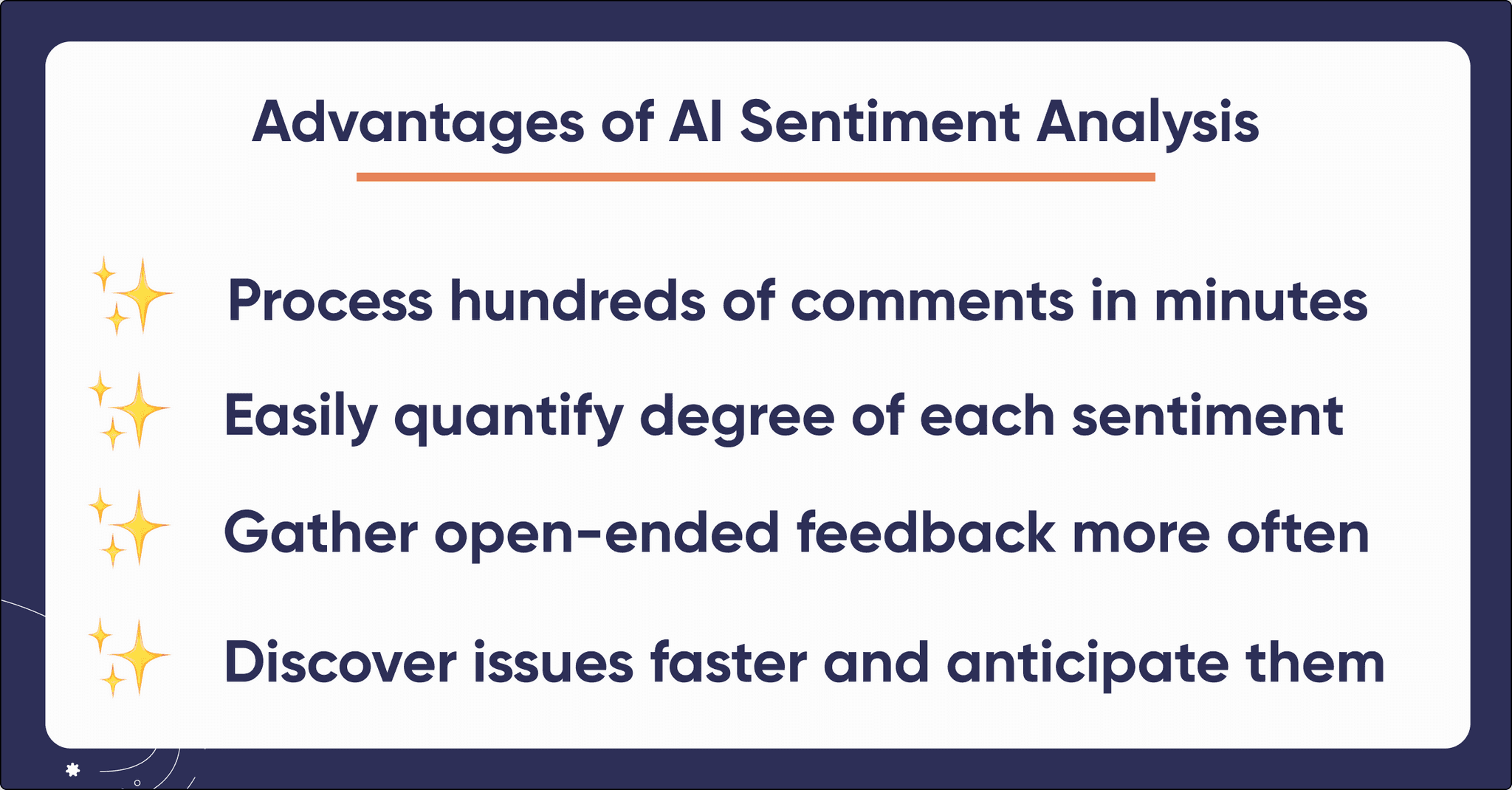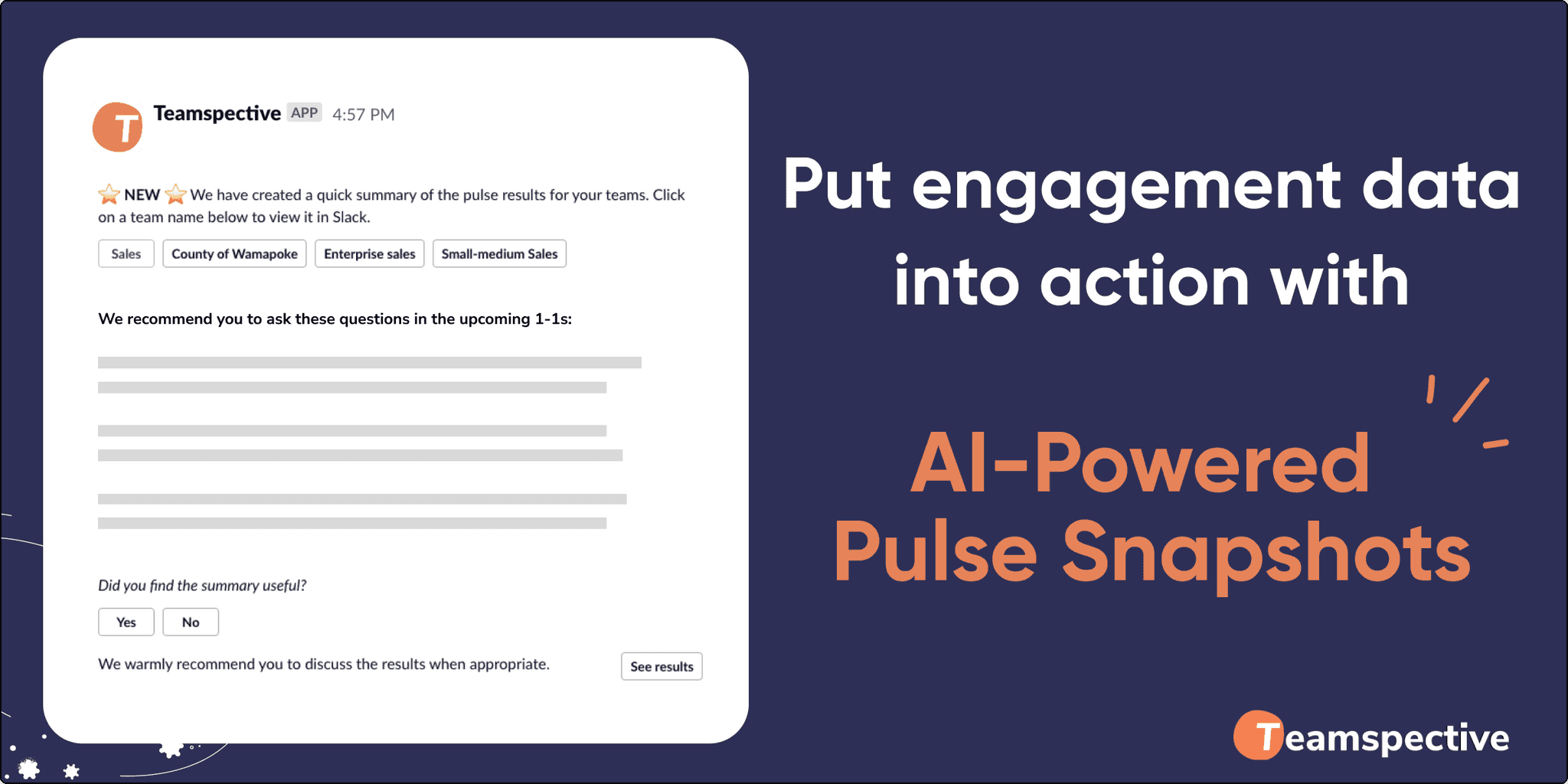"Survey AI" is rapidly becoming a buzzword, as the promise of combining AI technology with survey methodologies holds great promise. AI can streamline the survey process and enhance the quality of insights gathered, making it an invaluable asset for organizations aiming to improve things such as employee engagement and workplace satisfaction. But how can AI be utilized in surveys in the best way possible and what are the practical use cases?
- Understanding Survey AI
- The Advantages of Integrating AI into Employee Surveys
- Implementing AI into Survey Processes: Best Practices
- Practical Use Cases of Survey AI in Employee Engagement
- Conclusion
Understanding Survey AI
Artificial intelligence (AI) can be extremely useful in analyzing large volumes of data, especially for detecting trends or categorizing data that is hard to standardize into simple values, such as open-ended text. Survey AI refers to the application of artificial intelligence technologies to automate and improve the process of conducting and analyzing surveys.
By leveraging AI, companies can create, analyze, and interpret surveys more efficiently and effectively. This technology encompasses a range of capabilities, from natural language processing (NLP) and machine learning to analytics, all aimed at making surveys more intelligent and responsive to the nuances of human feedback.
Artificial intelligence can be applied for many kinds of surveys, including the following practical use cases: Customer Satisfaction, Employee Engagement, Market Research, Health Assessments and Research, Educational Surveys, Feedback Forms for Events and Conferences, and Product Feedback. In this article, we’ll focus on the employee engagement use cases.
The Advantages of Integrating AI into Employee Surveys
Enhanced Personalization
One of the standout benefits of using AI with surveys is its ability to personalize surveys to the individual level. AI algorithms can analyze previous responses and engagement levels, tailoring questions to suit each employee’s role, experiences, and feedback history. This personalized approach not only improves response rates but also ensures that the data collected is more relevant and insightful.
Real-time Analysis and Insights
Survey AI tools are equipped with the capability to analyze responses in near real-time, providing immediate insights into employee sentiment and engagement. This allows HR professionals and managers to swiftly identify and address areas of concern, fostering a more responsive and proactive organizational culture.
Improved Question Quality
AI can significantly enhance the quality of survey questions by identifying and recommending adjustments to reduce bias and improve clarity. This leads to more accurate and meaningful employee feedback, which is essential for informed decision-making.
Spotting Trends and Problem Areas
From analyzing large volumes of employee engagement data, survey AI can identify both positive and negative trends, as well as how widespread they are in the organization. This capability enables organizations to implement strategic initiatives to address potential issues before they escalate, contributing to a more positive and productive work environment.
Implementing AI into Survey Processes: Best Practices
To effectively integrate survey AI into your organization, consider the following best practices:
- Start with clear objectives: Define what you hope to achieve with your employee surveys. Clear objectives will guide the design and implementation of your AI-enhanced survey process.
- Ensure data privacy: With AI handling sensitive employee feedback, it’s crucial to prioritize data privacy and security. Transparently communicate how data will be used and protected. The use of 3rd party tools can also be beneficial here, as it can prevent direct employer access to raw survey data, effectively preventing the identification of a specific employee for example.
- Train your AI with diverse data: The accuracy of AI predictions and analyses depends on the diversity and quality of the data it is trained on. Ensure your training data encompasses a wide range of feedback and employee demographics, or use software providers like Teamspective whose AI models are purpose-built and trained for these tasks already.
- Combine AI insights with human judgment: While AI can provide valuable insights, human judgment is essential for interpreting data within the context of your organization’s unique culture and objectives.
Practical Use Cases of Survey AI in Employee Engagement
AI has a broad range of potential applications in employee surveys, which can significantly enhance their efficiency, accuracy, and the depth of insights.Teamspective is pioneering many applications of AI in employee engagement. Here are our 2 most common use cases for AI that our customers love.
Employee Sentiment Analysis
AI can process hundreds or even thousands of comments in minutes. AI sentiment analysis looks at a large amount of text, such as survey responses, identifying repeated topics. Then, it analyzes how positive or negative the sentiment on each particular topic is. It can easily quantify the degree and volume of each sentiment across the organization or within specific teams.
Because AI-based analysis is much faster, it allows organizations to gather open-ended feedback more frequently than before, building a clearer picture of employee sentiment and enabling leaders to take action faster.
Learn more about Teamspective AI sentiment analysis in our blog post: “Applying AI sentiment analysis in engagement surveys – benefits, applications, implementation”
Analysis of Pulse Survey Data
Modern pulse survey tools are great at collecting employee engagement data, but issues typically arise when you need to interpret it to get meaningful insights. This is due to several reasons such as managers not having time to analyze data manually or the people team having limited bandwidth to help with team-specific issues. It can cause issues within teams to escalate, impacting employee productivity, motivation and many other factors. To address these issues, it is crucial to make engagement data more accessible and actionable, and this is where AI can be of major help.
Teamspective uses AI to analyze pulse survey answers, summarize positive and negative trends, suggest follow-up questions, and to generate follow-up talking points for one-on-one meetings. This makes data far more actionable to leaders, allowing them to address issues across the whole organization and in specific teams, without needing to manually dig into the data.
You can learn more about how Teamspective’s AI solutions help you generate better employee engagement insights through pulse surveys here.
Conclusion
Survey AI is transforming the landscape of employee surveys, offering unprecedented opportunities for personalization, real-time insights, and predictive analytics.
By embracing this technology, organizations can not only streamline their survey processes but also gain deeper, actionable insights into their workforce. As AI continues to evolve, its integration into employee surveys will undoubtedly become more sophisticated, further empowering organizations to foster a thriving, engaged workplace culture.
Teamspective is at the forefront of developing AI-enabled employee engagement solutions. If you want to learn more about how we can help you leverage AI in employee engagement surveys, get in touch.




